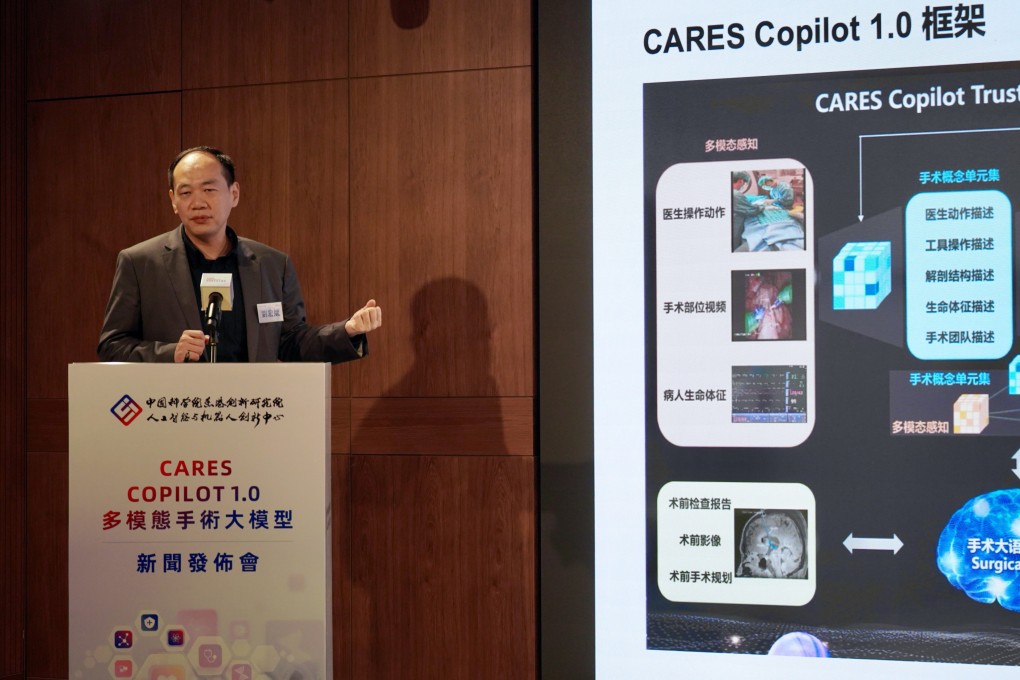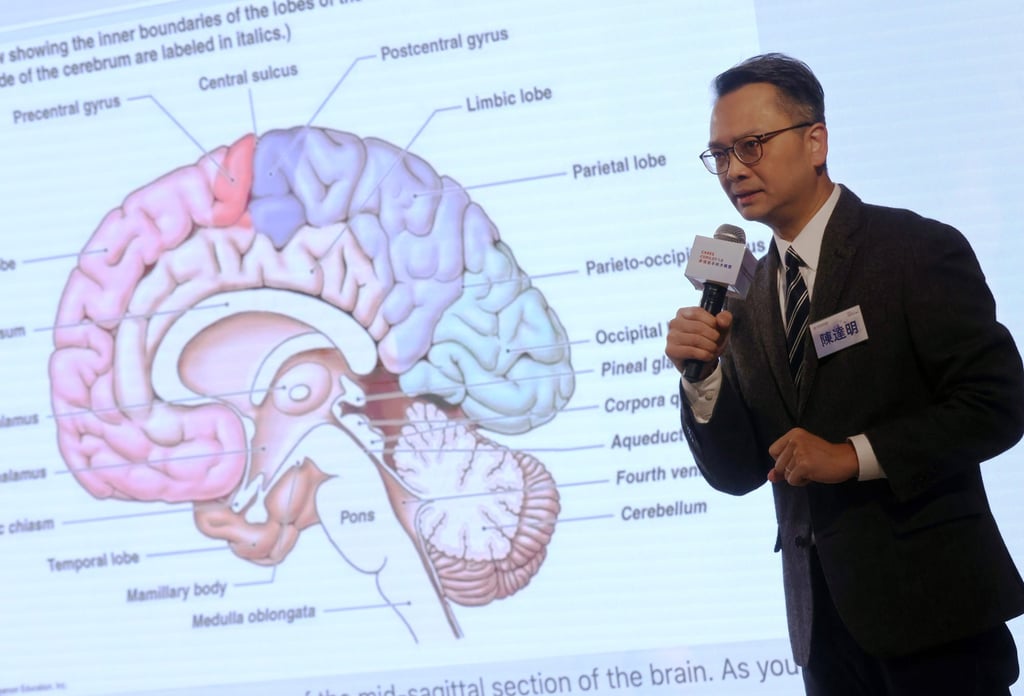Advertisement
Hong Kong research centre under China Academy of Sciences launches AI tool to assist in complex brain surgery procedures
- The Centre for Artificial Intelligence and Robotics expects its new AI model to help neurosurgeons provide ‘more efficient clinical diagnosis’
- The CARES Copilot 1.0 system has already undergone internal testing across a number of hospitals in Hong Kong and the mainland
Reading Time:2 minutes
Why you can trust SCMP
1

A Hong Kong-based research centre under the Chinese Academy of Sciences (CAS) has launched a new artificial intelligence (AI) tool to assist in complex brain surgery, even as the healthcare industry deals with an inadequate number of specialised databases for this procedure.
Advertisement
The Centre for Artificial Intelligence and Robotics (CAIR), the Hong Kong branch of mainland China’s national research institute, on Monday unveiled the CARES Copilot 1.0 AI model to help neurosurgeons provide “more efficient clinical diagnosis and to make better medical judgments based on sufficient references”, said Liu Hongbin, the centre’s executive director, in an interview with the South China Morning Post.
The CARES Copilot 1.0 system has already undergone internal testing across a number of hospitals in Hong Kong and the mainland. It has been deployed in doctors’ workflow to help them “prepare surgical plans and for post-surgery management”, Liu said.
During a live demonstration on Monday at the Hong Kong Science Park, Danny Chan Tat-ming, head of the neurosurgery division at the Department of Surgery in the Chinese University of Hong Kong, showed how the CARES Copilot 1.0 model is capable of generating key information from multiple academic papers, including citations, within seconds to ensure the accuracy of answers. Chan said the tool can achieve an accuracy rate of up to 95 per cent.

The latest initiative by CAIR, which is co-funded by the Hong Kong government’s InnoHK research programme, reflects the efforts of state agencies on the mainland to develop a range of AI innovation alongside private technology companies, in the country’s bid to catch up with advances made by the likes of ChatGPT creator OpenAI.
Advertisement
CARES Copilot 1.0, which was based on Meta Platforms’ Llama 2 large language model (LLM), was trained on various multimodality databases – including text, images, magnetic resonance imaging (MRI), computed tomography (CT) scans and ultrasound imaging – tailored for the medical field. LLMs are the technology used to train ChatGPT and similar generative AI services.

Advertisement